Chemical-recycling – Bio-based-polymer 15-06-2022 - Arhive
Chemical-recycling – Bio-based-polymer
Crude Oil Prices Trend
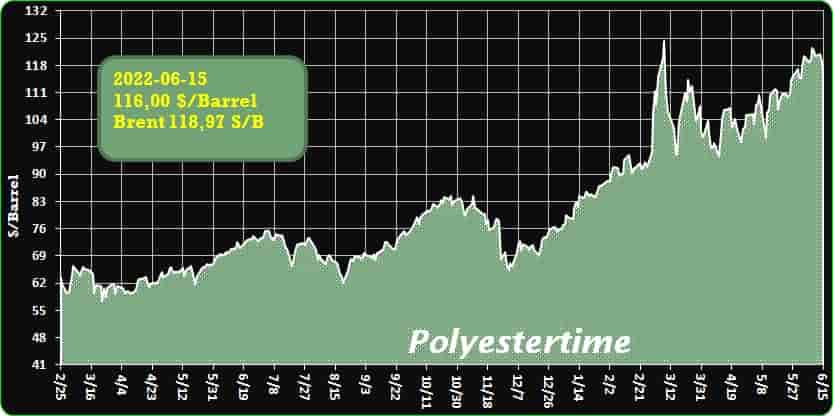
-Borealis divestment lifted by higher fertilizer prices, polymer values ‘normalising’ – CEO
Higher fertilizer prices after Russia’s invasion of Ukraine helped Borealis to achieve an improved price for the divestment of its fertilizer division to Agrofert, the CEO of the Austrian polyolefins major said on Monday.
Thomas Gangl added that weaker demand is pushing polyolefins – including polyethylene (PE) and polypropylene (PP) prices – lower in Europe, a move that had been expected as prices start “normalising”.Chemical-recycling – Bio-based-polymer
The head of Borealis was unable to specify what proportion of the company’s target of nearly 2m tonnes/year of “circular products” produced by 2030 will come from mechanical or chemical recycling, but added that without deploying the latter at scale, the target would be unachievable.
HIGH PRICES, BETTER DEAL
Earlier in June, Borealis said it would divest its fertilizers division – including the production of melamine and nitrogen products, as well as fertilizers – to the Czech food and agricultural conglomerate Agrofert for €810m.
The price represented an increase in the enterprise value (EV) for the division of 78% compared with a previous offer in February from Russia’s EuroChem, which at the time valued the division at €455m.
On 2 February, EuroChem submitted an offer to acquire the division for €455m, but Russia’s invasion of Ukraine on 24 February prompted Borealis to decline the offer on 11 March.
In Q2, already-high fertilizer prices rocketed further as both Russia and Ukraine are key suppliers to the world’s markets, but importers were unable to secure volumes from either country because of the war.Chemical-recycling – Bio-based-polymer
In the interim, Borealis managed to find another bidder with a better offer.
“At the time [February], the situation for fertilizers was a different one, and €455m then seemed a fair price… A big part of the global imports from the two countries were not available in the market, and demands for fertilizers rose, prices went up significantly, up to four times,” said Gangl.
“This is why we see that, for a certain period of time, the profitability [of fertilizers] will be significantly better than it was and, therefore, earnings and cash flow will rise: a new price had to be defined.”
POLYOLEFINS PRICES ‘NORMALISING’
The war in Ukraine also pushed energy prices higher, with inflation in the eurozone – of which Austria is a member – reaching 8.1% in May, its highest level since the 19-country currency union was formed.
Higher inflation – and expectations of interest rate hikes – have made consumers wary of large-ticket purchases, which could slow growth. This has left central bankers scratching their heads about how far interest rates have to rise to rein in inflation, and whether they risk a downturn if they raise them too far, too fast.
Within this environment, demand for key polyolefins such PE and PP was due to slow and prices fall, an outcome confirmed by the Borealis CEO.
“We see demand is not continuing at the same level, it is coming down – by how much, it depends on the different business segments. However, we are now coming from an environment of extremely high demand and high margins [for polyolefins producers],” said Gangl.
“We knew we should not get used to that. Right now, enough supply is meeting demand, so prices are weakening… Moreover, logistics issues should also start normalising – we will see a slightly different picture [for the polyolefins markets] in the second half of this year.” Chemical-recycling – Bio-based-polymer
MECHANICAL OR CHEMICAL RECYCLING?
Last week, Borealis presented ‘Strategy 2030’ which, among other targets, aims to produce 1.8m tonnes/year of circular polymers by that year.
Borealis currently produces 100,000 tonnes/year of circular polymers, including recycled PE (R-PE) or recycled PP (R-PP).
Although mechanical recycling is well-deployed throughout the industry, chemical recycling – which the industry insists will be key to making all polymers fully circular – is in its infancy. For additional support, future EU policies should consider chemical recycling as a key part of its Circular Economy, said Gangl.
Gangl would not commit to what total of the 1.8m tonnes/year will come from mechanically or chemically-recycled product, but stressed that chemical recycling is essential for the plastics industry to become fully circular.
In the 27-country EU, only Spain has passed a regulation – linked to its plastic packaging tax – exempting chemically-recycled content from the €450/tonne tax, effective 1 January 2023.
“Chemical recycling is the needed part [to achieve the EU’s recycling content targets]. Not everything can be mechanically recycled – in recycling, the process cascades down from mechanical recycling first to the residual parts: chemical recycling is the only way to recycle those,” said Gangl.
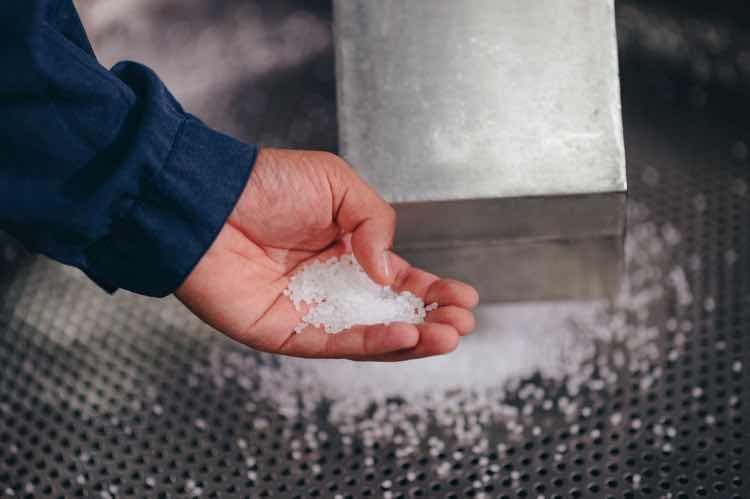
-Improving Sustainability and Circularity in Plastics
Recycling rates are growing, but still far from where they need to go.
At a Glance Chemical-recycling – Bio-based-polymer
- Improving the circularity of plastics—returning used plastic to the supply chain rather than having it become waste—will be critical to meet sustainability goals.
- At the current pace, only 10% to 14% of plastics will be recycled by 2030, falling well short of announced targets.
- Companies that make and use plastics need to establish partnerships and change the way they operate to develop joint solutions that improve circularity.
- Supportive legislation and industry standards are also needed to help change behaviors and strengthen circular economics.
As attention has focused on the problem of plastic pollution in the environment, governments and the private sector have taken steps to promote recycling and reduce plastic waste. These measures include phasing out certain single-use plastics and setting specific goals on plastics recycling. Targets vary by region. For example, the European Union aims to recycle all plastic packaging by 2030, whereas the US aims to recycle half.
In the private sector, companies that make and use plastics are making new commitments to expand the use of recycled and bio-based plastics, reducing the amount of plastic used, and increasing recycling through better design and new investments in infrastructure. There are also many new recycling initiatives and partnerships, along with innovation in new plastic types such as low-carbon plastics made from biomaterials.
Our clients tell us they understand that more needs to be done to improve the sustainability and circularity of plastic products, that is, the ability to put materials back into the supply chain, rather than depositing them as waste. Plastics producers and users know that if concerns aren’t addressed, they risk facing more stringent regulation and more pressure from customers.
But they’ve also said this is one of their many priorities, along with broader environmental, social, and corporate governance (ESG) commitments, including emissions reductions (see Figure 1). In many cases, improving plastic circularity will also reduce emissions, making it essential for delivering on the industry’s decarbonization goals and ensuring the license to operate among growing concern about plastic waste. Chemical-recycling – Bio-based-polymer
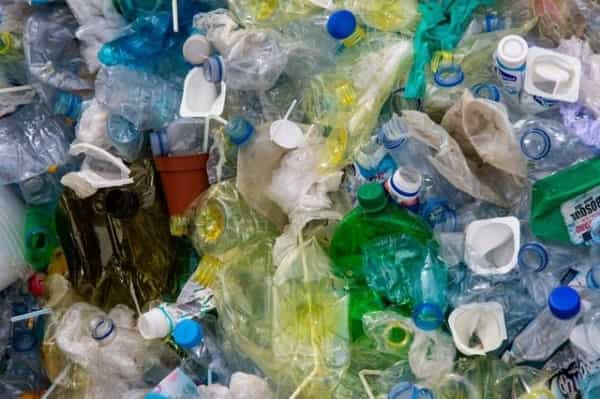
-LanzaTech transforms captured carbon into plastic
CARBON recycling specialist LanzaTech, with the support of Danone, says it has found a way to produce plastic via specially-engineered carbon-eating bacterium. The process, which uses emissions from steel mills or gasified waste biomass before they are released into the atmosphere, directly converts CO2 into monoethylene glycol, (MEG), a key building block for polyethylene terephthalate, (PET), resin, fibres and bottles.
Widely used in everyday products from clothing, carpets and upholstery, through packaging to kitchenware, engine coolants and antifreeze, MEG is obtained from ethylene, via ethylene oxide, that in turn is hydrated by using either a thermal or catalytic production process. Chemical-recycling – Bio-based-polymer
Ethylene on the other hand can be produced from naphtha, synthesis gas, coal and biomass. Ethylene is the most produced basic petrochemical in the world and such is its demand, that around 177m t of it was used globally in 2021.
Now though, by using synthetic biology and artificial intelligence (AI) tools to discover multiple novel pathways, LanzaTech has found a way for proprietary engineered bacterium to convert carbon emissions directly into MEG through fermentation without the need for an ethanol intermediate.
Jennifer Holmgren, CEO of LanzaTech said: “We have made a breakthrough in the production of sustainable PET that has vast potential to reduce the overall environmental impact of the process. This is a technological breakthrough which could have significant impact, with applications in multiple sectors, including packaging and textiles!”
So far, the direct production of MEG has only been proven at a laboratory scale, but with the success of this proof-of-concept phase, LanzaTech says it plans to continue the scaleup phase of its direct-to-MEG technology.Chemical-recycling – Bio-based-polymer
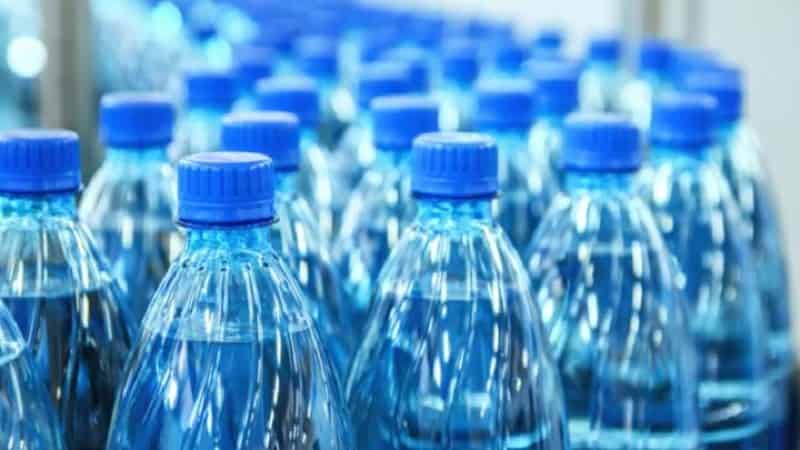
-Ecosure is creating a sustainable alternative for single-use plastic
Packaging materials are made of sugarcane bagasse.
Among global environmental corners, the rampant use of single-use plastic is harming the environment worldwide. Packing leftover food in plastic boxes is a common practice in restaurants. To minimize this, Ecosure Pulpmolding is converting sugarcane bagasse into pulp mouldings for food packaging.
CitySpidey came across Ecosure at World Environment Expo 2022 held at Pragati Maidan. Ecosure brings us one of the most innovative and eco-friendly ideas to form sugarcane bagasse into pulp moulding which is 100% safe for food and liquid packaging and also a revolution towards bringiing the end of single-use plastic packaging products.
The company offers sustainable solutions to produce inhouse pulp fibre from nonwood resources by using chemical-free patented technology & to produce moulded fibre pulp products. Chemical-recycling – Bio-based-polymer
Gunjan Saxena, the director of sales, says “We are focused to provide products which are need of the hour and completely sustainable. The global bagasse tableware products market growth is fueled by the expansion of quick-service restaurants(QSR) across the globe. And we believe the consumer trends indicate the growing preference towards sustainable, environment-friendly and biodegradable products.”
The company has successfully installed more than 10 successful projects installed all around India and 25+ are under installation and upcoming projects. This is a 100 per cent make-in-India solution and gives a free demo to all customers before buying the pulp moulding machines. Chemical-recycling – Bio-based-polymer
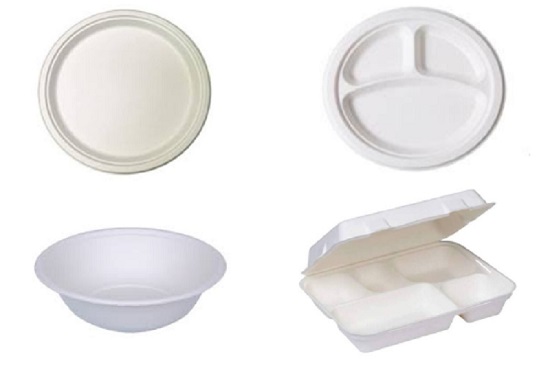
-Greatview launches aseptic carton with bio-based polymer coating from INEOS and UPM Biofuels
Greatview, INEOS and UPM Biofuels have collaborated on Greatview Planet aseptic cartons made from FSC-certified paperboard and laminated with polymers that incorporate tall oil-based bio-naphtha using a mass balance approach.
To develop the Greatview Planet packaging material, the company partnered with INEOS and UPM Biofuels. The aseptic packaging material is reportedly laminated with bio-attributed, mass-balanced polymers made by INEOS, which incorporate tall oil-based bio-naphtha from UPM Biofuels. Tall oil is a residue of the pulping process and originates from forests. Chemical-recycling – Bio-based-polymer
Juha Rainio, sales and marketing director at UPM Biofuels, explains: “We are committed to replacing fossil-based feedstocks with renewable alternatives.
“An excellent example of this is our UPM BioVerno naphtha, produced from tall oil – a sustainable residue of wood pulp processing – in our unique Lappeenranta Biorefinery in Finland.”
Rob Ingram, CEO of INEOS Olefins & Polymers Europe, adds: “The new INEOS product that Greatview uses, is made from UPM’s bio-naphtha, converted into a 100% bio-attributed polymer using 100% renewable wind power.
“This new polymer gives Greatview a competitive edge based on a certified sustainable product range. Innovation across our business continues to drive the sustainability of our products and production processes. “
According to the companies, at the Greatview factory in Halle, Germany, the bio-attributed polymer is used for laminating the paper board and producing the aseptic carton pack.
The Halle factory apparently runs on 100% green electricity with resource-efficient production lines that are certified accoring to ISO 14001 (Environmental Management) and ISO 50001 (Energy Management). Chemical-recycling – Bio-based-polymer
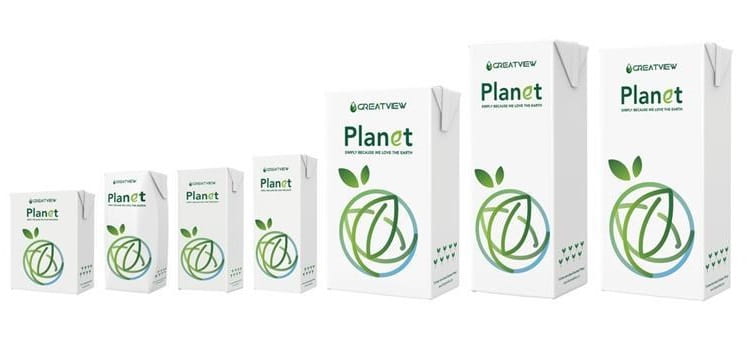
-Novozymes launches biopolishing for manmade cellulosic fibers
Denmark’s Novozymes has partnered with Fiberlife to offer bio-polishing for manmade cellulosic fibers (MMCF). It reduces fuzz and pilling in viscose, modal, and lyocell fabrics.
Enzymes are used in biopolishing to remove loose fiber ends, resulting in a clean, new-looking surface that lasts at least 60 washes. It can also improve print quality in the everyday wash and wear situations. Chemical-recycling – Bio-based-polymer
After polyester and cotton, MMCF is the world’s third most popular textile fiber. Nonetheless, it trails polyester and cotton with a market share of roughly 6%, owing to quality difficulties such as the materials developing fuzz and pills after only a few washes.
According to the firm, this gives the clothing a worn appearance and influences buyers’ perceptions of quality and sustainability.
Circular fashion begins with waste-free production that is free of water contamination, pollutants, and chemicals. Novozymes’ biodegradable enzymes contribute to this by lowering the usage of water and chemicals in manufacturing.
Investing in clothes that will last longer is critical to reducing the environmental effect of the fashion industry. Fiberlife may assist textile businesses in improving quality and sustainability while strengthening the connection with a growing number of eco-conscious consumers.
MMCF fibers are derived mostly from renewable wood and can aid in the transition away from oil-derived synthetic fibers. According to Novozymes, Fiberlife can help the fashion sector decrease its environmental footprint by prolonging the quality and durability of MMFC fabrics.Chemical-recycling – Bio-based-polymer
The microfibrils that protrude from cellulose-based fibers are microscopic hairs from these textiles’ fibers. They cause fluff and pilling, making the fabric surface feel rough and trapping dirt, reducing cleanness. Colors and whites appear less brilliant because of both the trapped dirt and the microfibrils themselves. Before, during, or after dyeing, textile mills polish cellulose-based materials.

-LyondellBasell revised the June increase in PE prices in the US
LyondellBasell has revised a previously announced price increase of 9 cents per pound (USD198 per tonne) on all grades of polyethylene (PE) sold in North America to a 5 cent-pound increase from June 1, the company said.
The letter added that the company will also seek a 5 cent-pound increase for all grades of PE sold in North America from July 1.Chemical-recycling – Bio-based-polymer
Earlier it was reported that LyondellBasell (LBI), the world’s largest producer of polyolefins, on June 5 stopped the production of LDPE in La Porte (La Porte, Texas, USA) in order to carry out unscheduled work. It is not yet known how long the repair work at this enterprise with a capacity of 110 thousand tons per year will last.
According to ScanPlast of market Report, by the end of 2021, the estimated consumption of POLYETHYLENE in Russia amounted to 2,487.45 thousand tons, which is 13% more than in the same period a year earlier. The supply of all types of ethylene polymers has increased.
LyondellBasell is one of the world’s largest producers of polypropylene, a leading supplier of polyethylene and catalysts, as well as a developer of technologies for the production of polyethylene and polypropylene. The company manufactures products at 58 production sites in 18 countries. Chemical-recycling – Bio-based-polymer

-Nylon 6 industrial yarn export achieves sound growth
In 2021, the global economy will recover as a whole. As China’s economic recovery and epidemic prevention and control lead the world at the time, in addition, the effect of policies and measures to stabilize economic growth have continued to show, driving export growth beyond expectations.Chemical-recycling – Bio-based-polymer
Nylon 6 industry has the advantages of relatively stable cost and supply. The export growth of nylon 6 chip, textile filament, film, and modified plastics is very strong. Among them, the export of nylon 6 industrial yarn (high tenacity yarn of nylon-6, H.S. code: 54021910) also posts stable growth.
In the years before the epidemic, the monthly export volume of nylon 6 industrial yarn basically fluctuated around 3,500-4,500 tons. In the early stage after the epidemic outbreak in 2020, the export volume was greatly reduced, but it was quickly repaired after only two or three months, and gradually returned to normal levels after a short burst of growth.
Beginning in the second half of 2021, export of nylon 6 industrial yarn started a stable growth model. The monthly export volume maintained an upward trend (export only affected by the Spring Festival in 2022), and continuously hit new highs.
In addition to the favorable macro environment for the export growth, the growth in demand for differentiated products (such as anti-UV) is also the main supporting reason. Chemical-recycling – Bio-based-polymer
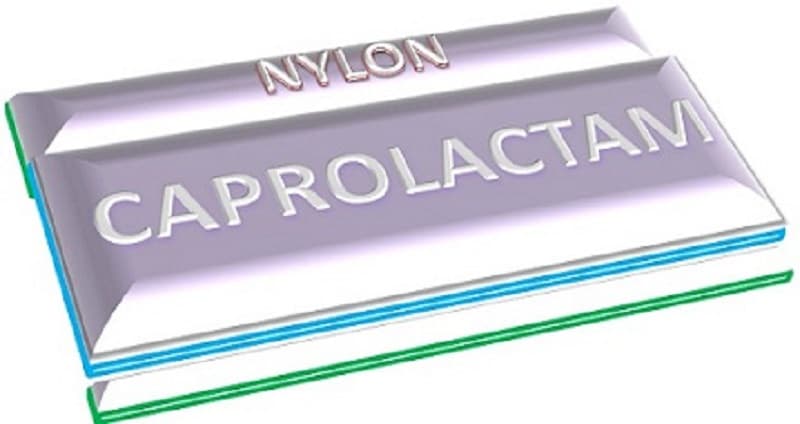
Chemical-recycling – Bio-based-polymer
